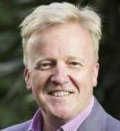Computational Neurology
Research team
As UCL’s Pro-Vice-Provost for Artificial Intelligence, I am committed to delivering AI for public benefit. My own research promotes the use of machine learning in a variety of ways to boost diagnoses, prognosis and treatment in neurology.
Machine learning can combine the intuitive flexibility of a clinician with the formality of the statistics that drive evidence-based medicine. Models that pull together thousands of different variables can still be rigorous and mathematically sound. Using machine learning we can now capture the complex relationship between brain anatomy, function and outcome with high precision. For example, machine learning can be used to detect anomalies in brain scans, determine how a drug or intervention is working in the brain and reveal new ways that interventions can be targeted.
Translational machine learning
In collaboration with Parashkev Nachev (UCL), Jorge Cardoso and Sebastien Ourselin (King’s College, London), we are leading a translational programme in neuroradiology funded by an Innovation Award from the Wellcome Trust . Our goals are to (i) synthesise high-dimensional, multi -modal clinical and neuroimaging data and (ii) develop new machine learning tools to enable highfidelity, individual-level prediction, inference, and prescription, for operational and clinical decisionmaking in stroke, neuroradiology, and acute cognitive dysfunction. We also work with external partners including Google DeepMind to deliver new and innovative approaches to using AI in healthcare for patient benefit.
Neuro-feedback training
Neuro-feedback aims to teach patients how to change their behaviour by focusing attention on the type of processing that is required for the most effective recovery strategies. With neuro-feedback training, we present patients, in real time, with an indication of how much activity there is in brain regions that need to be engaged for good task performance. Patients learn to control this brain activity by changing the way they perform the task. This induces neuroplasticity that supports recovery (Ekanayake et al., 2018).
Autism
Autism is a disorder that affects how people interact with others. My team has shown that differences in the structure and function of local brain areas are linked to higher-order cognitive symptoms in autism (Watanabe et al., 2019). This could lead to earlier diagnosis if these differences also exist in young children and better diagnosis for autistic people who do not present typical behavioural symptoms.
